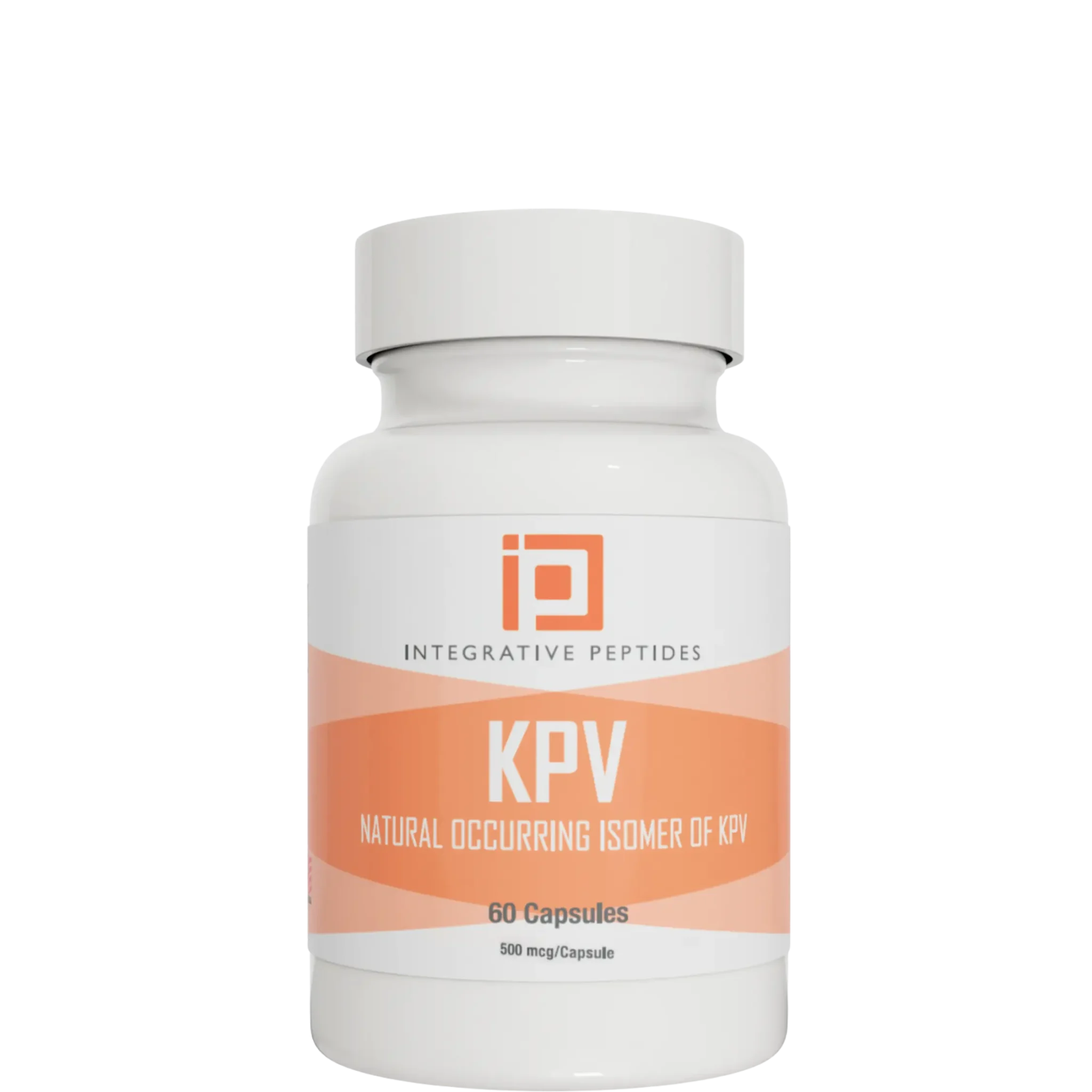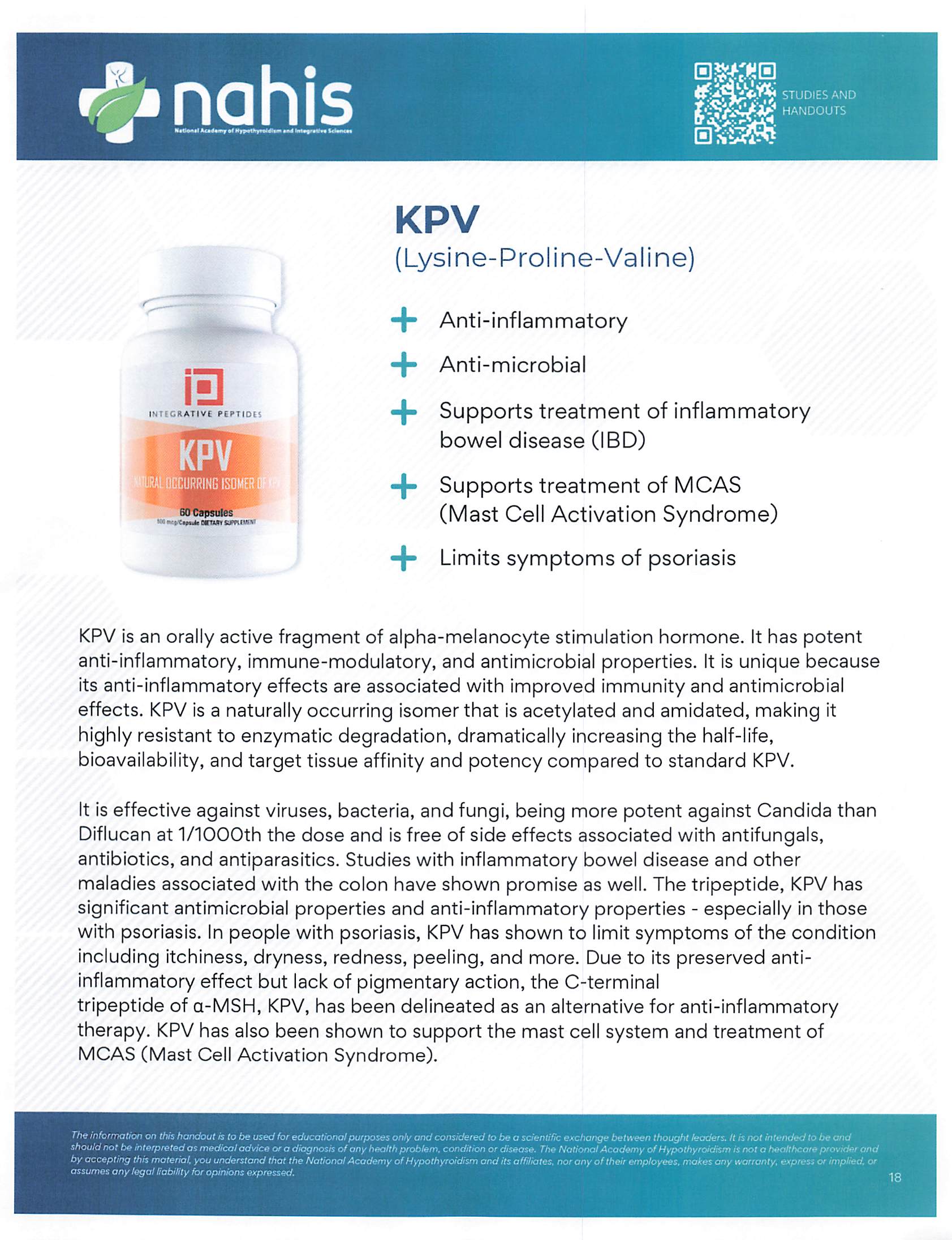
KPV is an orally active fragment of alpha-melanocyte stimulation hormone. It has potent
anti-inflammatory, immune-modulatory, and antimicrobial properties. It is unique because
its anti-inflammatory effects are associated with improved immunity and antimicrobial effects. KPV is a naturally occurring isomer that is acetylated and amidated, making it
highly resistant to enzymatic degradation, dramatically increasing the half-life, bioavailability, and target tissue affinity and potency compared to standard KPV.
It is effective against viruses, bacteria, and fungi, being more potent against Candida than
Diflucan at 111000th the dose and is free of side effects associated with antifungals, antibiotics, and antiparasitics. Studies with inflammatory bowel disease and other
maladies associated with the colon have shown promise as well. The tripeptide, KPV has significant antimicrobial properties and anti-inflammatory properties - especially in those with psoriasis. In people with psoriasis, KPV has shown to limit symptoms of the condition
including itchiness, dryness, redness, peeling, and more. Due to its preserved anti
inflammatory effect but lack of pigmentary action, the C-terminal
tripeptide of a-MSH, KPV, has been delineated as an alternative for anti-inflammatory
therapy. KPV has also been shown to support the mast cell system and treatment of MCAS (Mast Cell Activation Syndrome).

